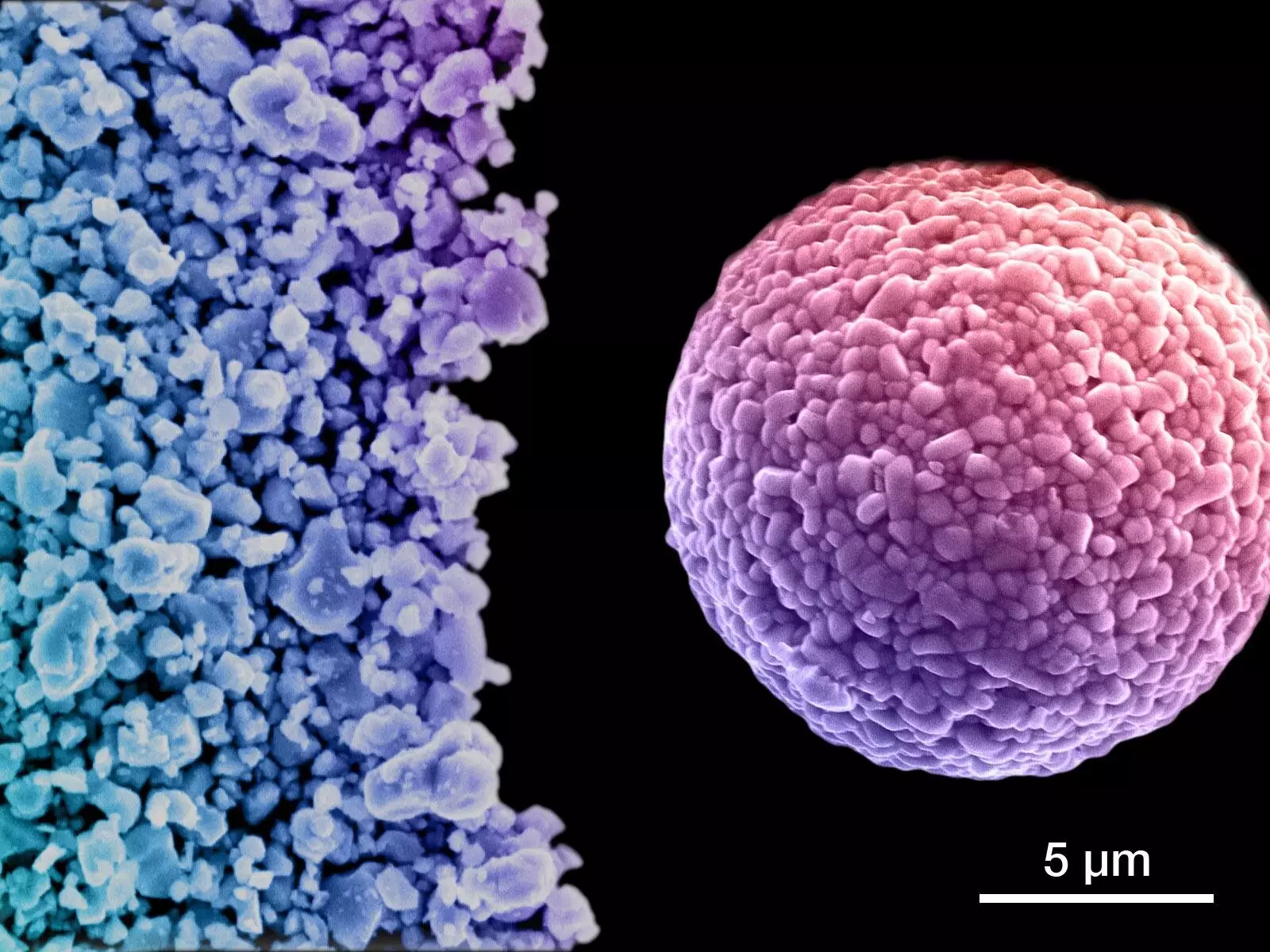The Department of Energy’s Pacific Northwest National Laboratory has made a groundbreaking discovery that could revolutionize the manufacturing of lithium-ion batteries. Through innovative research, their team has developed a cost-effective method for synthesizing single-crystal, high-energy, nickel-rich cathodes. This advancement has the potential to significantly improve the energy storage capacity and lifespan of electric vehicle (EV) batteries, making them more efficient and reliable.
In the production of lithium-ion batteries, the cathode plays a crucial role in determining both the energy capacity and overall cost of the battery. Nickel-rich cathodes have shown great promise in increasing energy storage and extending the range of EVs. However, conventional manufacturing methods result in polycrystal structures that are rough and lumpy, making them prone to material failure, cracking, and decay.
To overcome these challenges, the research team at the Pacific Northwest National Laboratory introduced a pre-heating step in the cathode manufacturing process. This pre-heating step alters the structure and chemical properties of the transition metal hydroxide, resulting in a uniform single-crystal nickel-rich cathode. These single-crystal cathodes exhibit a smooth surface and improved structural integrity.
Advantages of Single-Crystal NMC811
The adoption of single-crystal NMC811 cathodes brings several significant advantages for lithium-ion batteries. The research team tested the scaled single crystals in realistic 2Ah lithium-ion pouch cells and found that the batteries remained stable even after 1,000 charge and discharge cycles. The microscopic examination of the crystals revealed no defects and a perfectly aligned electronic structure, ensuring optimal battery performance.
Implications for Electric Vehicles and Renewable Energy
The breakthrough in single-crystal cathode synthesis is a major step forward for the use of high-energy density lithium batteries. Electric vehicles can benefit from this development by being equipped with batteries that provide extended range without suffering from degradation. Furthermore, these long-lived batteries can be tethered to the grid, supporting clean renewable energy sources and enhancing the resilience of the power system.
Cost-Effective and Scalable Manufacturing
One of the key advantages of the innovative synthesis method is its cost-effectiveness and scalability. The drop-in approach allows cathode manufacturers to utilize existing production facilities to produce single-crystal NMC811. Moreover, this method can be easily adapted to produce cathodes with even higher nickel content, surpassing the existing 80% limit.
The research team at the Pacific Northwest National Laboratory, in collaboration with Albemarle Corporation and other partners, is now working towards commercial-scale synthesis and testing. By utilizing conventional manufacturing equipment and techniques, they aim to realize the full potential of single-crystal cathodes in a cost-effective and environmentally sustainable manner. This research will further reduce costs, minimize waste generation, and propel the development and adoption of high-performance lithium-ion batteries.
A New Era for Battery Manufacturing
The discovery of a cost-effective method for synthesizing single-crystal, nickel-rich cathodes marks a new era in battery manufacturing. With the ability to store more energy per charge and withstand additional charging cycles, lithium-ion batteries with single-crystal cathodes have the potential to transform the electric vehicle industry. As this research progresses towards commercialization, it paves the way for cleaner, more efficient, and longer-lasting energy storage solutions that will power our sustainable future.



Leave a Reply